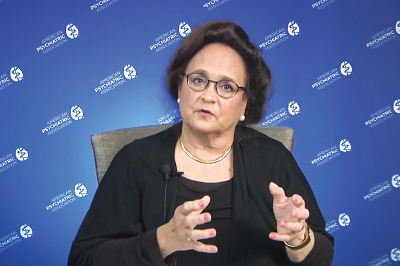Guidelines Announced for Women’s Preventive Services
Abstract
Specific preventive services for women covered without copayments under the ACA have now been determined with the help of the head of APA’s Women’s Caucus.
The Women’s Preventive Services Initiative (WPSI) announced its final clinical guidelines in December for preventive health care services for women.
The initiative was an update of a 2011 report from the Institute of Medicine (now the Health and Medicine Division of the National Academies of Sciences, Engineering, and Medicine) that listed eight preventive health care services for women.
The 2016 update refined the original eight guidelines and added a ninth recommendation for breast cancer screening. The American College of Obstetricians and Gynecologists managed the study process for the report under a grant from the U.S. Health Resources and Services Administration.
Recommendations accepted for the WPSI guidelines are covered without copayments under the Affordable Care Act and thus affect how much women pay for their health care.

Fellow members of the Women’s Preventive Services Initiative valued the insights of psychiatry during their deliberations, says APA’s representative, Maureen Van Niel, M.D., of Cambridge, Mass.
For the first time, the WPSI steering committee included an APA representative, Maureen Van Niel, M.D., a private practitioner in Cambridge, Mass., and president of APA’s Women’s Caucus (Psychiatric News, October 7).
“All the members of the multidisciplinary task force, who represented leaders from over 15 professional organizations, came to a unanimous consensus about the recommendations after nine months of work together,” Van Niel told Psychiatric News. “The guidelines leave room for the important role of doctor-patient shared decision-making when determining what is right for an individual woman patient.”
The newest guideline, for breast cancer screening for women at average risk, steps into an area of some confusion about when to initiate screening and how often it should be used.
“Average-risk women should initiate mammography screening no earlier than age 40 and no later than age 50,” concludes the report. “Screening should continue through at least age 74, and age alone should not be the basis to discontinue screening. Screening mammography should occur at least biennially and as frequently as annually.”
The other recommendations from the WPSI are more specific than the 2011 version and include these:
Comprehensive breastfeeding counseling, services, and supplies
Screening for cervical cancer for women aged 21 to 65
Contraceptive counseling, access to contraceptives, and follow-up care
Screening for gestational diabetes mellitus
Annual screening and prevention education for human immunodeficiency virus
Screening for interpersonal and domestic violence
Behavioral counseling for sexually transmitted infections
Annual well-woman preventive care visits
The presence of a psychiatrist on the panel opened a door to consider the mental health implications of preventive services on an equal basis with other medical issues, said Van Niel.
“For example, when considering the recommendations for the frequency of breast cancer screening in an average-risk patient, we discussed the anxiety produced by a false positive result on a breast cancer screen balanced against the anxiety produced by a missed cancer diagnosis in a woman patient who was screened on a less frequent basis.”
Van Niel hopes that in the future, the WPSI may take the next step and directly address a primary mental health condition affecting women.
The full report of the Women’s Preventive Service Initiative’s “Recommendations for Preventive Services for Women” will be available in mid-February. ■



